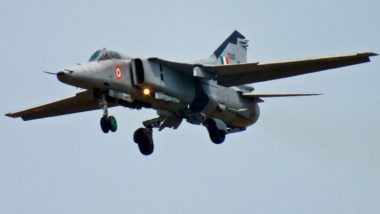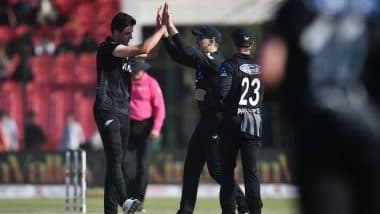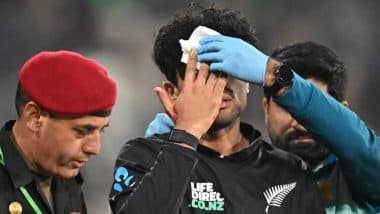A day after Indian Air Force’s (IAF) action against Jaish-e-Mohammed terror camps in Balakot, Muzafarrabad and Chakothi, Pakistan Air Force (PAF) on Wednesday violated Indian airspace targeting military installations. The IAF retaliated to PAF’s intrusion. In this engagement, one Pakistan’s F-16 fighter jet was shot down. In the process, India also lost one Mig-21 Bison warplane. Pakistan Does a U-Turn, Now Says 'Only 1 IAF Pilot In Custody'.
The Ministry of External Affairs (MEA) and the IAF, in a joint briefing, confirmed that an Indian pilot is in Pakistan's custody. Meanwhile, Pakistan claimed that they had captured IAF’s wing Commander Abhinandan Varthaman. A video in which mob of locals was seen thrashing the alleged IAF pilot was shared by Pakistan. DG, ISPR Major General Asif Ghafoor also that the IAF pilot is being treated as per norms of military ethics. Imran Khan Pitches For 'Peace Talks' as India-Pakistan Tension Escalates, Says 'Wars Have Always Been Miscalculated'.
The video of the IAF pilot was removed from the official Twitter handle of the Pakistan government.
The MEA has charged Pakistan of violating the Geneva Convention by sharing the image of an injured IAF personnel. It has asked Islamabad to ensure no harm is caused to the pilot under their custody.
On Twitter too, "Geneva Convention" and "#SayNoToWar" were top trending hashtags. The term Geneva Convention usually denotes the agreements of 1949, negotiated in the aftermath of the Second World War. The convention extensively defined the basic rights of wartime prisoners. It is an established protections for the wounded and sick, and established protections for the civilians in and around a war-zone.
Know all about Geneva Convention:
- The Geneva Conventions comprise four treaties, and three additional protocols, that establish the standards of international law for humanitarian treatment in war.
- The treaties of 1949 were ratified, in whole or with reservations, by 196 countries
- The rules protecting prisoners of war (POWs) are specific and were first detailed in the 1929 Geneva Convention. They were refined in the third 1949 Geneva Convention following World War II.
- The status of POW only applies in international armed conflict. POWs are usually members of the armed forces of one of the parties to a conflict who fall into the hands of the adverse party.
- POWs cannot be prosecuted for taking a direct part in hostilities. Their detention is not a form of punishment, but only aims to prevent further participation in the conflict.
- The fourth 1949 Geneva Convention and Additional Protocol I also provide extensive protection for civilian internees during international armed conflicts.
Similarly, Group Captain Kambampati Nachiketa, the then Flight Lieutenant was taken as a Prison of war by Pakistan during the Kargil war on May 27, 1999 form Batalik Sector. He remained in custody of Pakistani forces for eight days. Nachiketa was first taken to an undisclosed place in the Batalik Sector. After his return, Nachiketa was not willing to disclose his experience while he was in captivity. Fl. Lt Nachiketa was handed over to the International Committee of the Red Cross in Pakistan and subsequently was repatriated over the Indian border check post at Wagah, on the Lahore Amritsar Road.
Yesterday, the IAF targeted JeM headquarters two weeks after the February 14 Pulwama attack in which 40 Central Reserve Police Force personnel were martyred. JeM claimed responsibility for the suicide attack on a CRPF convoy.
(The above story first appeared on LatestLY on Feb 27, 2019 07:25 PM IST. For more news and updates on politics, world, sports, entertainment and lifestyle, log on to our website latestly.com).













 Quickly
Quickly





















